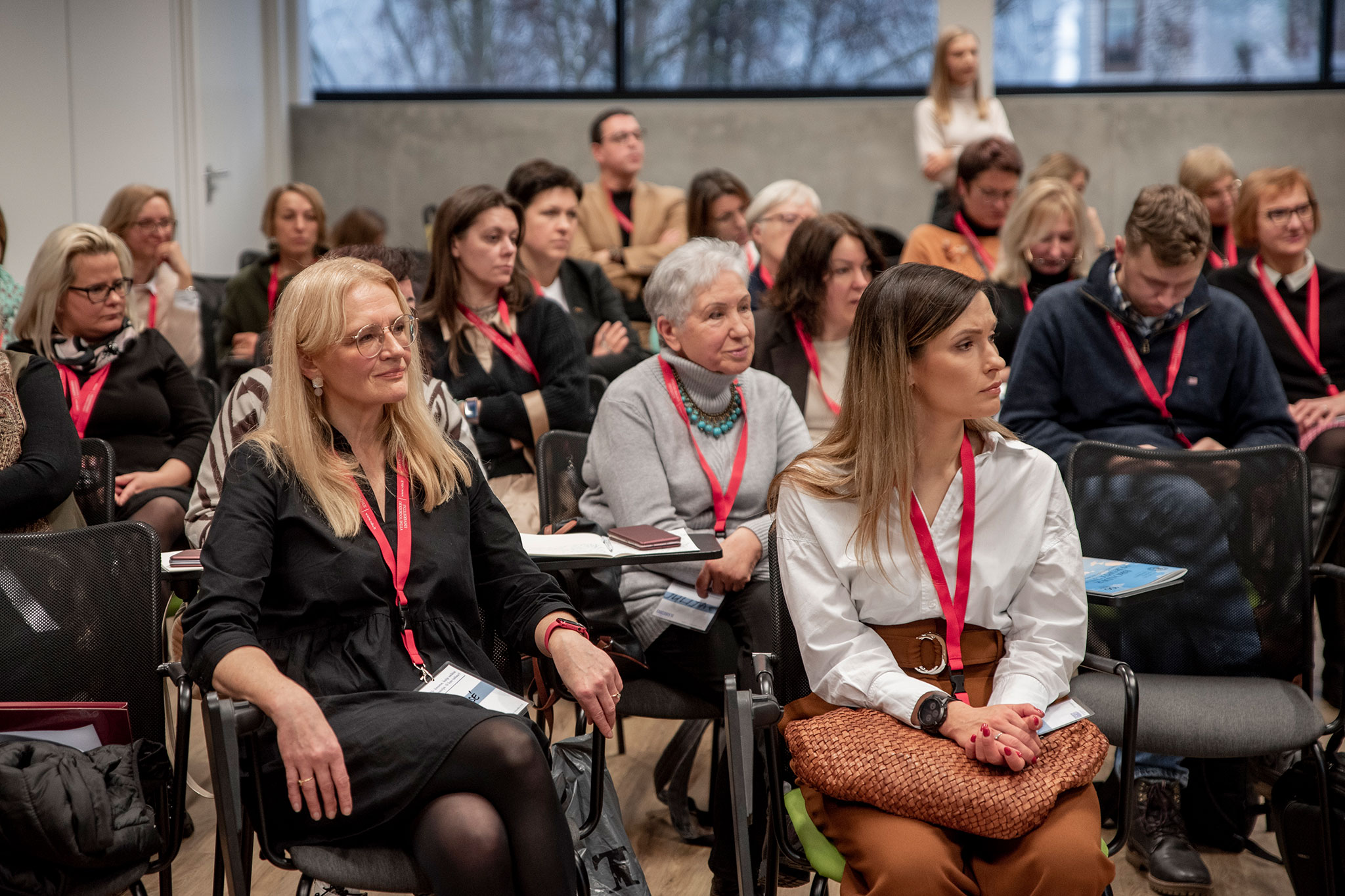 Back
Back

The European Commission‘s guidelines emphasize that the proliferation of disinformation, false information, and manipulations is a major challenge for Europe. Due to disinformation and growing volumes of manipulative information, the usual practice of democratic formation of opinion and citizens‘ will is collapsing.
Although Europe as a whole is equally faced with the enormous challenge of disinformation and manipulations, each country is experiencing and dealing with it differently. In September, during the annual conference organized by the Central European Digital Media Observatory (CEDMO) in Prague, the situation in Lithuania was presented by Auksė Balčytienė, the head of the DIGIRES project, and Ieva Ivanauskaitė, the business development manager of the major partner of the DIGIRES project, news portal DELFI. We share the speakers‘ thoughts on the challenges of the future of digital Europe and Lithuania in the new reality of the digital space.
The conference organized by CEDMO aimed to identify particularly harmful areas of the impact of disinformation, to which it is necessary to apply legal regulatory instruments – to prohibit, remove, and curb this kind of digital content.
In her report “Baltic democracies endangered – how Lithuania, Latvia, and Estonia fight for their digital futures”, the head of the DIGIRES project Auksė Balčytienė emphasized that professional journalism in Lithuania is among the most important actors guaranteeing the resilience of society, as well as the most active fighters against disinformation.
Meanwhile Ieva Ivanauskaitė, the head of business development of the DELFI news portal, in her report “Invisibility cloaks: evolution of trolls in a society where the majority supports Ukraine” sought to show that the Russian/Kremlin propaganda machine works in a particularly targeted and consistent manner. Therefore, the response must be coordinated and very effective, which requires both regulatory and organizational measures.
The Baltic countries have many years of experience in combating Russian disinformation. As the experience of the three countries shows, legal regulation of Kremlin’s propaganda and false information is necessary to protect the information space. In order for such regulation to function smoothly, coordination of various institutional activities – monitoring of disinformation, informing in a timely manner – is important.
“Journalists monitor the public space, analyze it, identify radical information, and filter out lies. In order for this practice to remain intact during digital transformations, for the Lithuanian news media to be viable, able to renew itself innovatively and technically, and to provide deep analytical insights into fact-checking, the news media needs legal and economic incentives. Legal – to protect and maintain the right to freedom of the press, economic – to create conditions for creating quality content that would meet the public interest,” says Auksė Balčytienė.
The working format of the conference is built on the principle of knowledge exchange: short presentations were followed by discussions, attended by policy makers (representatives of the EU institutions), implementers of policy aspirations (experts and specialists of national states), scientists, journalists, and public activists.
“In my opinion, the most important result, as in every conference used effectively, is the exchange of good practices, knowledge, and contacts. The more we have to learn from or to collaborate with, the easier it is for us to make an impact. After the conference, we already had a virtual exchange of knowledge with the Croats, and we found common topics that can be developed in the long run with other individual speakers”, says Ieva Ivanauskaitė, the head of business development of the DELFI news portal.
The conference also discussed such trends as the growing sense of confusion in modern societies, the lack of trust in democratic institutions (among which, as causing obvious opposition, the news media is mentioned), growing mutual alienation, etc.
The entire presentation of Auksė Balčytienė can be found here
The entire presentation of Ieva Ivanauskaitė can be found here
The information was prepared on the basis of the material of the two-day annual international conference of researchers and practitioners “Europe Tackles Information Chaos”, organized by the Central European Digital Media Observatory (CEDMO) specializing in the Visegrád Group countries: the Czech Republic, Slovakia, Poland, and Hungary. The conference took place on September 22-23, in Prague.
The publication was prepared by Kristina Berksun and Brigita Sabaliauskaitė, translated by Aistė Turčinavičiūtė